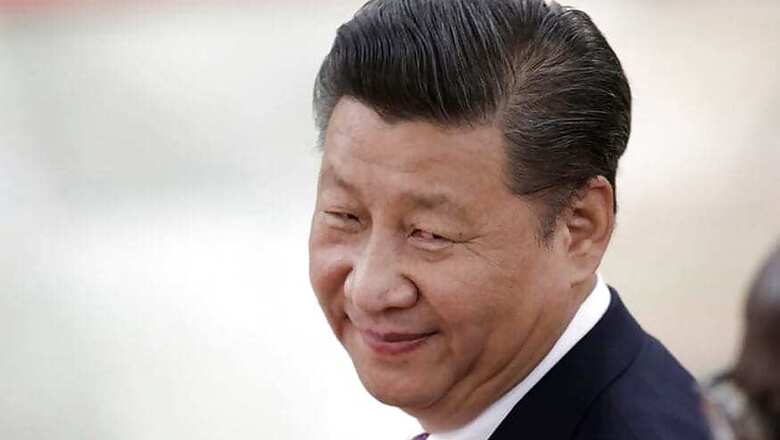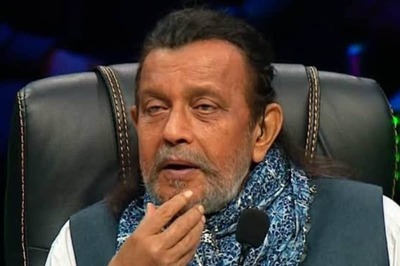
views
There are several aspects of the recently concluded 19th Congress of the Communist Party of China (CPC) that are noteworthy for India.
First, CPC General Secretary Xi Jinping has attempted to redefine what acceptable economic growth in China is. The expression ‘contradiction’ is an important one in the Chinese communist lexicon, and until the 19th Party Congress, the ‘principal contradiction’ was the one between ‘the ever-growing material and cultural needs of the people and backward social production’ or, in other words, China’s inability to provide for the basic material needs of its people.
Following nearly 40 years of economic reforms, this challenge has now been met, with China eradicating poverty on a massive scale, and at the quickest pace in human history.
This process has, however, also resulted in rising income inequalities between individuals and between regions in China, and a huge environmental damage and health crises across the country.
As a result, Xi has now redefined the ‘principal contradiction’ for the CPC, as that ‘between unbalanced and inadequate development and the people’s ever-growing needs for a better life’. In so saying, he has clearly targeted the excesses of the Chinese economic development model and called for China to move from ‘a phase of rapid growth to a stage of high-quality development’.
Xi Jinping’s report to the Congress, in fact, mentioned two centennials - the 100th anniversary of the CPC in 2021 and of the PRC in 2049 – several times.
These are important target dates for the CPC as China will have achieved a ‘moderately prosperous society’ by 2021, and will have become a ‘great modern socialist country’.
The confident articulation of these goals masks the fact that the health of the Chinese economy is a major cause of concern for China’s leadership. Indeed, this has resulted in some major policy confusions, in the economic domain – most notably an apparent U-turn from an important Party decision in 2013, which had called for a ‘decisive’ role for market forces. The 2013 decision was widely understood to be a sign that China was going to liberalize its economy, encourage the private sector and restrict the access of its inefficient and often loss-making state-owned enterprises (SOEs) to practically free capital.
Since then, Xi has effectively shown his preference for state-driven capitalism supporting SOEs not just at home but abroad as well, as part of his ‘Belt and Road’ initiative (BRI). Whatever the problems of the Chinese economy, however, Xi has very high ambitions for China’s SOEs calling on them to become stronger, world-class and globally competitive firms.
Lessons for India
India that is currently engaged in trying to make up for the huge shortage of jobs for its growing working-age population – the so-called demographic dividend – it is important for the country of over 1.2 billion people to ensure that the ‘Make in India’ project and the drive to create ‘ease of business’ do not undermine principles of fair play and equality, labour standards, and environmental norms. India should not simply duplicate the old Chinese growth model and thereby also suffer its consequences.
In fact, it is worth noting that Beijing’s ‘Made in China 2025’ industrial vision adopted in 2013 is focused on leadership and dominance in high-tech sectors while the ‘Make in India’ campaign is still talking about basic industrialization and mass employment. While the argument can be made that India cannot skip steps, it also cannot be denied that creating mind-numbing assembly line jobs for India’s youth today, based on an outdated industrial model, is not the way to go either.
Meanwhile, Xi’s call for green growth has real implications for Chinese politics in that administrators will now be held to account for environmental disasters on their watch and the good and ambitious ones will not just manage but prevent or resolve environmental problems.
Similarly, Xi’s call for civic-mindedness in China to improve is of a piece with the desire for more sustainable economic growth. This is a call relevant for India, too. However, it is not nearly as politicised or as pro forma in implementation in China as it is in India.
It must be asked if the Swachch Bharath campaign, three years after its launch, has had any real impact on changing the behaviour of Indian citizens. China, meanwhile, ranks its cities on the basis of cleanliness and quality of life and visitors to the top-ranking ones are constantly reminded of the achievement by their proud citizens.
What is evident from Xi’s report is that problems of environment, health, and urbanization – problems in India, too – are also seen as opportunities for China. Despite being the world’s largest polluter, Xi has confidently declared his country ‘an important participant, contributor, and torchbearer’ in the international response to climate change.
Xi has asked China to be a ‘country of innovators’, focusing on among other things, renewable energies, and transportation. Now, those are areas where India, too, could do with innovation, experimentation and faster implementation. India’s crises in agriculture and health and of air pollution and water shortages also demand nothing less.
Jabin T. Jacob, Ph.D. is Fellow at the Institute of Chinese Studies, Delhi. He blogs at www.indiandchina.com and tweets @jabinjacobt. Views are personal.



















Comments
0 comment